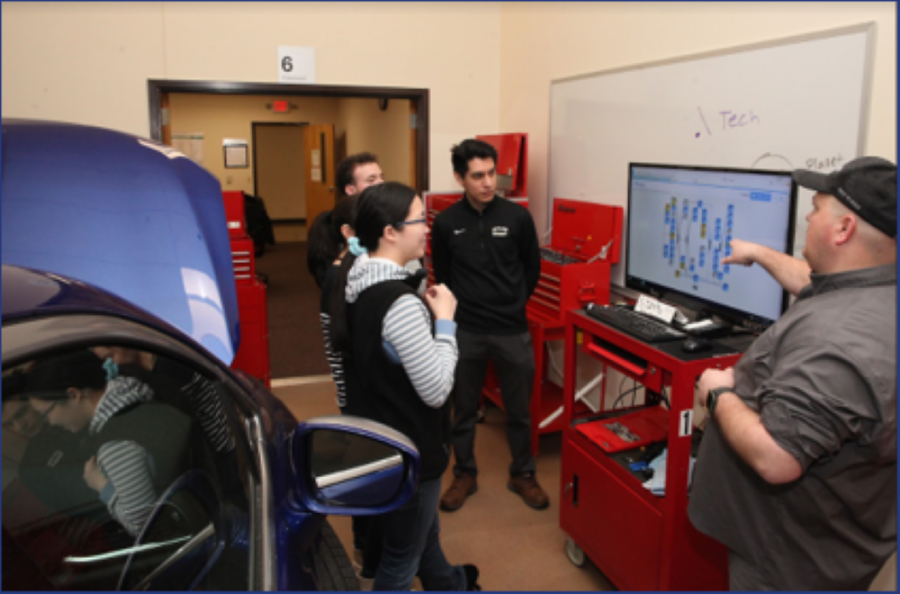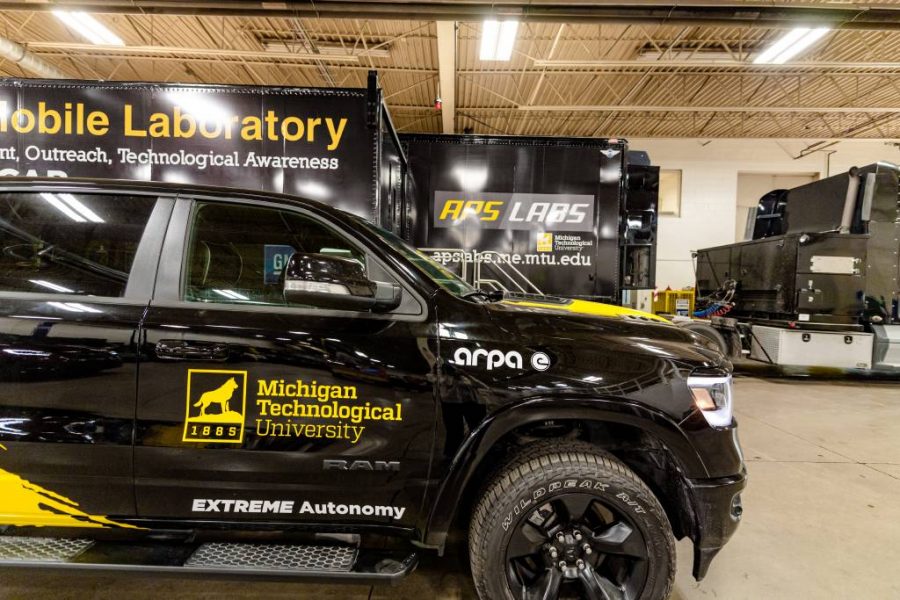(Writer’s note: this is a slightly revised, previously published article.)
Opening Up New Educational Pathways for Michigan Tech Students
The main initiatives of the Michigan Tech Global Campus are growing programs, promoting online learning, and raising awareness of Tech’s online offerings. Along with these, though, David Lawrence, Vice-President for Global Campus and Continuing Education, is always searching for additional opportunities. He strives to develop mutually beneficial partnerships between academia and industry. He seeks new educational pathways for all students, whether they are undergraduates or graduates.
Meeting these latter two goals is the main purpose of Stellantis’ PReP. PReP, or the Propulsion System Readiness Engineering Program, is an educational partnership between Michigan Tech and automotive company Stellantis. If you haven’t heard of Stellantis, it is a global company that comprises several European and American-rooted iconic brands. Its brands include, but are not limited to, Alfa Romeo, Chrysler, Citroen, Dodge, Fiat, Jeep, Maserati, Peugeot, and Ram. Stellantis is also a respected automotive industry leader. It aspires to be “the greatest sustainability mobility tech company” as well as a front runner in advancing technology for the mobility revolution. Several Michigan Tech alumni also work at this innovative organization.
PReP: Preparing Michigan Tech Students for the Mobility Revolution
PReP will benefit both Michigan Tech students and Stellantis. That is, students will acquire automotive systems knowledge, work experience, and applicable skills. The end result: having the necessary tools to transition into a Stellantis position, spring boarding their careers.
This program, targeted at incoming Michigan Tech Junior students, will supplement the last two years of their engineering degrees. That is, on top of their regular program courses, students will take both core (year three) and advanced courses (year four) that focus on vehicle electrification. For instance, some of the core courses in the first semester include Propulsion Architecture, Engine/eMotor, Transmission/Axle, Battery, Fuel economy/Emissions, Power Electronics, and Communication.
Along with attending weekly lectures from Stellantis propulsion experts, students will also get valuable hands-on experience. They will take facility tours, participate in teardowns, and have paid summer and senior-year internships. Through these experiences and mentorships with industry experts, they will develop communication, leadership, and professional skills.
Partnering with an Industry Leader
Michigan Tech’s mission is to strive to
create solutions for society’s challenges by delivering action-based undergraduate and graduate education, discovering new knowledge through research, and launching new technologies through innovation.
Similar to Michigan Tech, Stellantis is also committed to developing advanced technology while promoting sustainability and transparency. Stellantis strives to balance financial and environmental needs. Its Dare Forward initiative (March 2022) further expanded and quantified these goals. That is, the company has pledged to increase its remote workforce, put more battery-electric vehicles (BEVs) on American roads, and reduce its carbon footprint by 50%. In other words, sustainability is not solely a buzzword for Stellantis, but similar to our university’s sustainability promise, part of its ongoing strategic initiatives.
Both Michigan Tech and Stellantis value diversity, equity, and inclusivity. Stellantis’ community of employees spans over six regions and comprises over 170 nationalities. And the company is not stopping here. It is also striving to create a more equitable workplace for women. In fact, by 2030, its goal is having women holding at least 35% of all leadership positions.
Applying to the PReP
The PReP program, which should start in Fall 2023, will be available to a limited number of Michigan Tech students who
- are enrolled as either electrical or mechanical engineering majors
- sophomores who have at least two years available in their degree program
- have at least a 3.0 cumulative GPA
Students must commit to participating enthusiastically in the program, attending all the lectures and events, and meeting other rigorous criteria.
Stay tuned for more announcements about eligibility and application.
And while you are here, please extend a big thank-you to the bridge-building and creative thinking of David Lawrence. In his role as Vice President for Global Campus and Continuing Education, Lawrence is not only looking out for Michigan Tech’s online programs, but also the entire university community. When opportunity knocks, Lawrence does his best to be there, making sure our university is right there alongside him.








